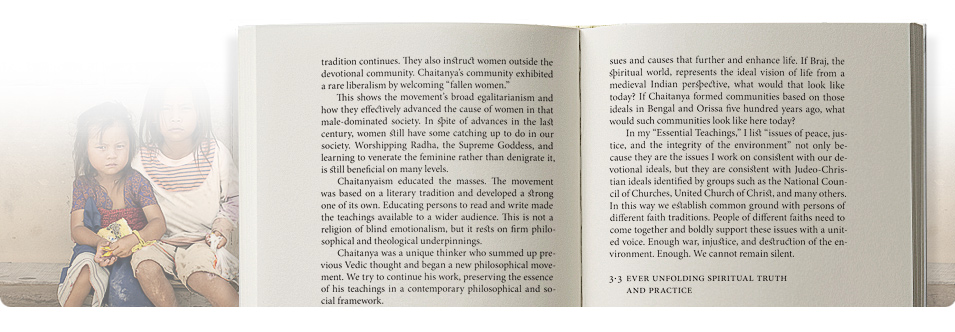
Media & Press RoomABOUT THE AUTHOR
FROM THE DICTIONARY u•ni•ver•sal•ist DOWNLOADS
BOOK INFO Universalist Radha-Krishnaism: The Way of Natural Devotion; A Practitioner’s Handbook TABLE OF CONTENTS 1. Introduction
2. Amorous Paths (New)
3. Universalist Radha-Krishnaism
4. Historical Roots
5. Means of Knowing God-dess
6. Manifestations of Divinity
7. Individual Spirits
8. World of Experience
9. Natural Devotion
10. Entering Braj (New)
11. Blazing Sapphire (New)
12. Braj Meditation (Short)
13. Braj Meditation (Long) (New)
Conclusion
Glossary
Bibliography
WHERE TO ORDER Available now, from Amazon.com  and bookstores everywhere. |
BOOK INFO | REVIEWS | BEACONS FROM INSIDE THE BOOK
In the Introduction of his book, Steve Bohlert opens his heart and reveals what ignited the writing of Universalist Radha-Krishnaism, A Spirituality of Liberty, Truth and Love …As a pastor, I was impressed with Marcus Borg’s book, Meeting Jesus Again for the First Time, in which he re-imagined what Jesus may have been like. More recently, I read his The God We Never Knew: Beyond Dogmatic Religion to a More Authentic Contemporary Faith, in which he takes on the even bigger task of re-visioning God and the Christian faith based on this “new†vision of God. This is the sort of scholarship I admire in the Christian tradition—the ability to bring out alternative voices and interpretations from scripture and tradition. Borg and others like Matthew Fox, Dominic Crossan, and John Spong present new, exciting ways of thinking about faith rooted in the mystical wisdom tradition, which remains relevant today. While these leaders are not universally accepted, they are respected by persons seeking a more progressive Christian vision, and a large segment of the church is clearly moving in that direction. But Steve is also aware of the perils of this task — current Radha-Krishna devotees are anything but receptive to modern outlooks on the nature of God, faith, this world, questions of salvation, and much more. He adds:I would like to see such a progressive reform movement develop within the followers of Radha-Krishna devotion in the West. So far, this has been slow, and dissident voices tend to be squashed or marginalized. I do what I can, and am slowly attracting like-minded intellectual, spiritual colleagues. […] Now that I no longer minister in the Christian church and focus on my Radha-Krishna devotional practices, I find that most Radha-Krishna devotees are fundamentalist literalists who think they have the ultimate answers to Truth and that their answers are superior to anyone else’s. When I interned at Calvary Presbyterian Church in Berkeley, California, Pastor Larry Peterson said, “Remember, your truth is truth with a small ‘t’ just like everyone else’s.†We live in a relativistic, pluralistic world open to truth in all forms. Our unique opportunity at this time allows us to take the best teachings and practices of all paths and integrate them into a multifaceted whole, which gives a more complete picture of Truth than any one path alone could.
|

|
See Beyond the Veil, |
Unique and Important, |
A post-modern map of faith, |
![]()

[…] Here we see the contextual nature of the religion. Chaitanya, his friends, and followers did not operate in a spiritual vacuum but as part of a changing society and culture. Society affected them, and they affected society. Although devotion is an individualistic affair, the individual still remains a part of society and should make a positive contribution to society. When a religion remains cut off from the rest of society, it becomes a cult.
[…] In my “Essential Teachings,†I list “issues of peace, justice, and the integrity of the environment†not only because they are the issues I work on consistent with our devotional ideals, but they are consistent with Judeo-Christian ideals identified by groups such as the National Council of Churches, United Church of Christ, and many others. In this way we establish common ground with persons of different faith traditions. People of different faiths need to come together and boldly support these issues with a united voice. Enough war, injustice, and destruction of the environment. Enough. We cannot remain silent. — Steve Bohlert
Universalist Radha-Krishnaism establishes a living, evolving process of God-dess realization rooted in traditional, Indian devotion, yet updated to preserve the essentials and discard unnecessary cultural practices, which alienate practitioners from contemporary society.
|
|